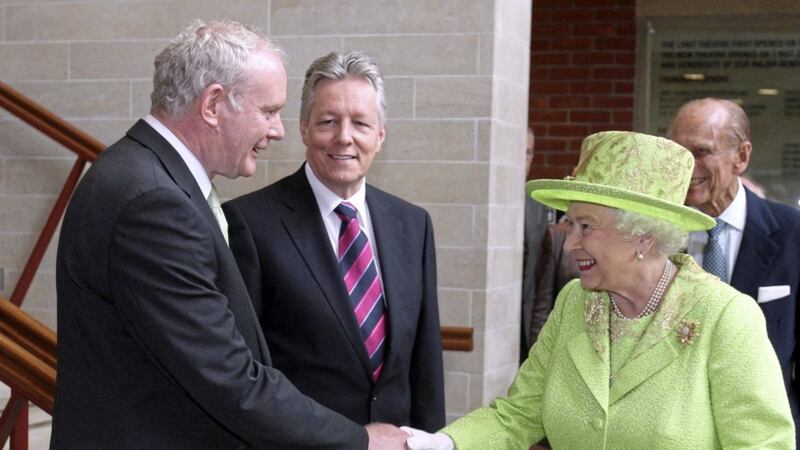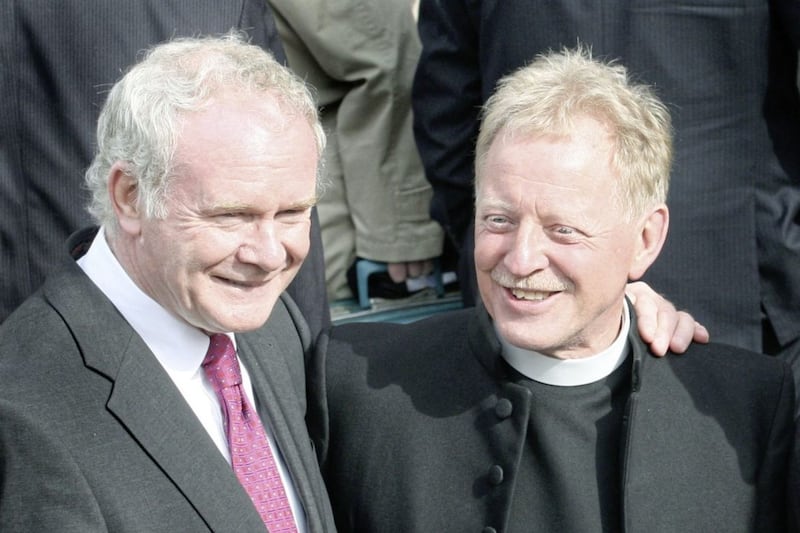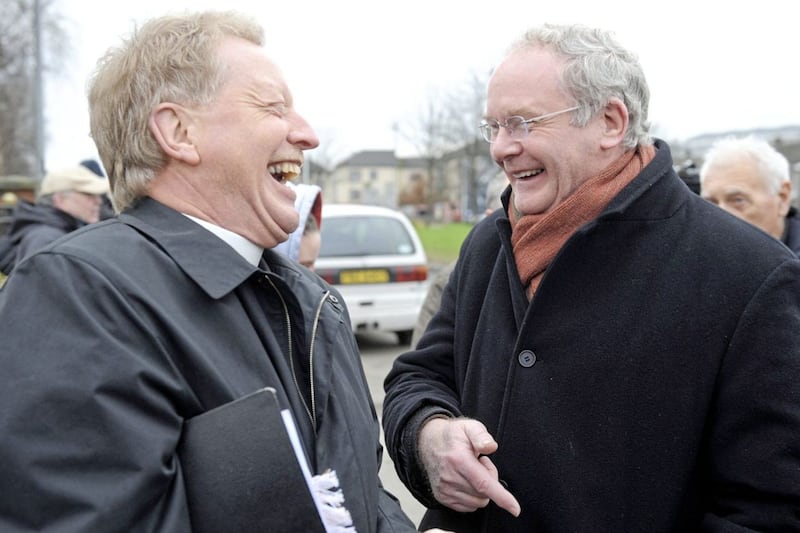LIFE, it has been said, is like an onion - you peel it off one layer at a time and sometimes you weep.
Since the start of the year, there have been tear drops of disappointment and disbelief with the sequence of failures to reinstate devolved government at Stormont.
The quite heroic endeavours of pivotal political figures who have, during their watch, strenuously laboured to bring about an unbelievable miracle and deliver a peace process, must not be lost.
In times like these it is worth remembering there have always been times like these and, no matter how long the night, dawn will break and the sun will continue to rise in the east and set in the west as it has always done.
With the prospect of more talking by elected representatives in the near future, it is important for both them and us to bear in mind nothing great is ever achieved suddenly; that's because progress is often uneven and success is never guaranteed.
A mutually favourable outcome will only emerge for those who are willing to go the extra mile and keep asking: "Is there a better way?" That is something the vast majority of people want our politicians to do.
Of course, it might sometimes feel like we are taking three steps forward and two steps backward.
Even so, we must not give up and neither must we lose hope. Whether we see eye to eye or rarely agree is not what counts.
What matters most is that we come together for that is the only way to achieve a greater good and make life better for everyone regardless of their creed or culture.
After all, as Einstein noted, "we share the same decent humanity, the same curiosity, hopes and dreams, the same God".
Now is the time for Catholics and Protestants, nationalists and unionists, loyalists and republicans to leave behind the dusty soils of the past, to go all out to bridge the gaps that prevent us from living better together and generate a eagerness to keep on building peace.
A strong case can be framed for our Stormont assembly members to work together to identify common ground between them and to work for the common good rather than sectional interests.
Now is the time for Catholics and Protestants, nationalists and unionists, loyalists and republicans to leave behind the dusty soils of the past, to go all out to bridge the gaps that prevent us from living better together and generate a eagerness to keep on building peace.
Patricia Knatchbull, the Countess Mountbatten, who died in June, suffered serious injuries in an IRA boat bomb off the coast of Sligo 38 years ago.
It claimed the life of her father, Lord Louis Mountbatten, her 14-year-old son Nicholas and her mother-in-law, as well as 15-year-old Paul Maxwell, a crew member from Co Fermanagh.
In response to a question regarding her third cousin, Queen Elizabeth II, shaking hands with Sinn Féin's Martin McGuinness, Countess Mountbatten said "she was absolutely right".
"I very much approve of anything that will bring about peace," she said.
And that should be the ground upon which we all select to stand because peace, which is more precious than gold, silver or diamonds has nothing to do with drawing lines and saying 'this far, and no further'.
Quite the contrary. Peace is about going beyond where we need to go.
Peace involves looking for a new way, one that refuses to hate and harbour division, that lets go of all bitterness and strife and which releases the need to put down and belittle 'the other side'.
Northern Ireland's quite unique power-sharing model for devolved government, which requires Orange, Green, Planter and Gael to work together, has offered attractive glimpses of what peace can be like.
To build on this we must encourage our politicians to persevere in the pursuit of peace and not to give up because we want our shared living space to be the kind of place where the discords of division progressively wither and the air becomes rich with the aroma of a new spring.
As Seamus Heaney put it in The Cure at Troy: "So hope for a great sea-change on the far side of revenge. Believe that further shore is reachable from here..."
- The Rev Dr David Latimer is minister of First Derry Presbyterian Church in Derry City







